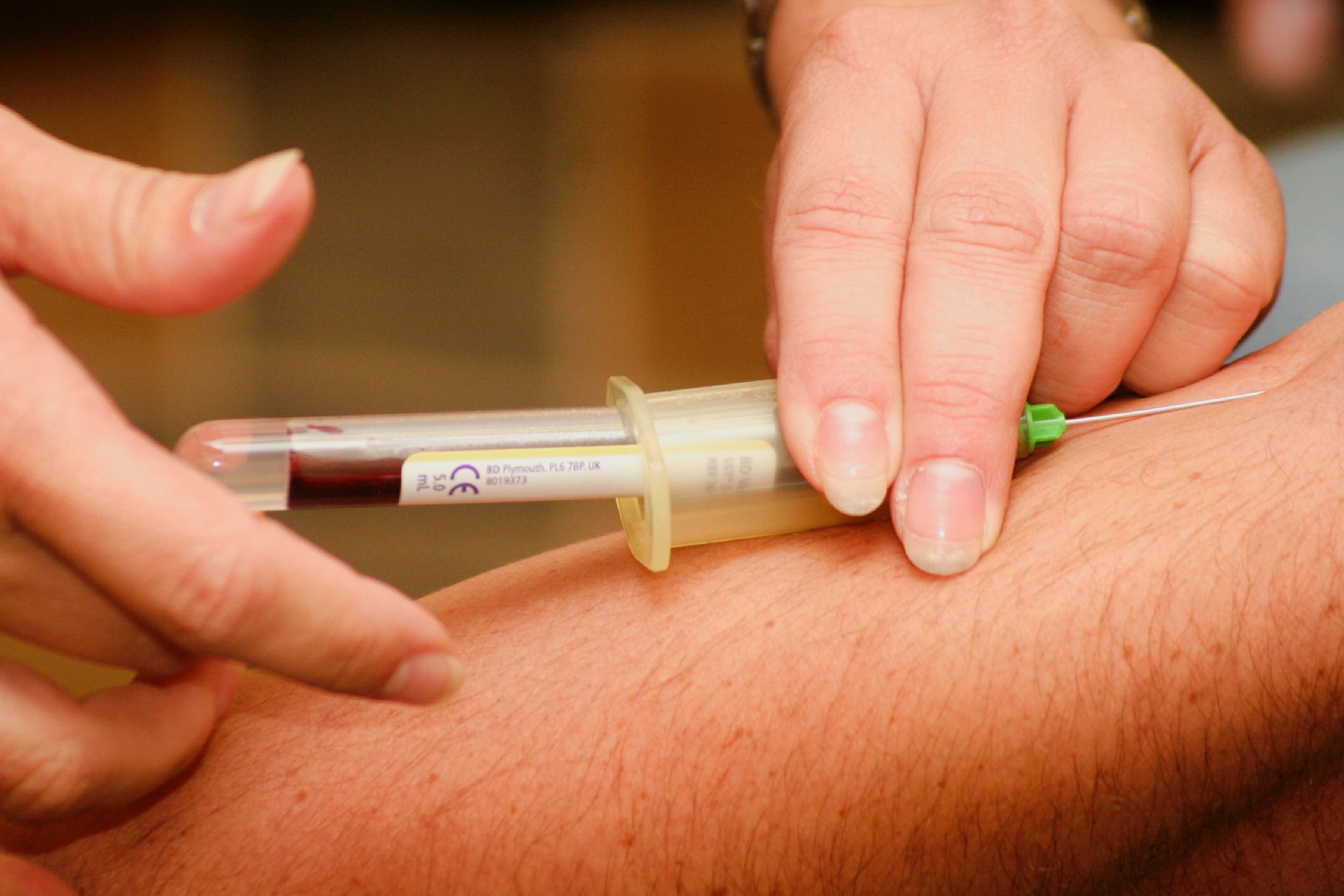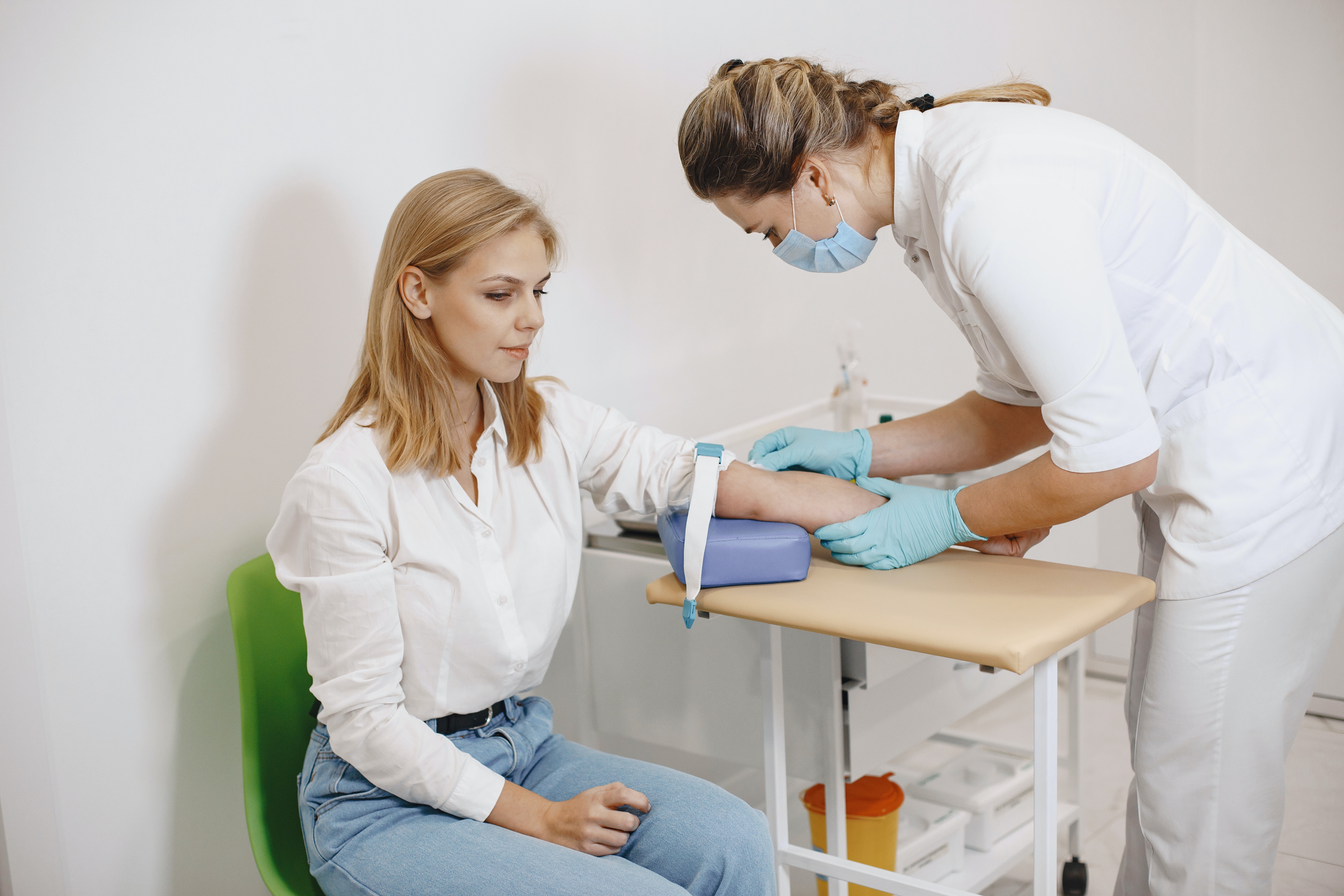How Long A Blood Test Takes & When To Expect Results

What Happens During A Blood Test And How Long It Takes
Blood tests are used for a huge range of purposes, from assessing your general state of health to screening for genetic conditions. They’re one of the most basic medical tests, capable of providing insights that guide treatment plans for all sorts of conditions and illnesses, and are carried out by trained medical professionals called phlebotomists.
They’re a common feature of both NHS and private healthcare processes. While they’re available through the NHS only when recommended by a GP or other practitioner, private blood tests can be booked at any time.
If you’ve got a blood test booked in or are planning to book one soon, whether it’s part of an NHS treatment plan or through a private phlebotomist, and you want to know more about the process, read on for all the information you need.
What happens during a blood test
When you’ve got an appointment with a phlebotomist, you’ll typically be given advice about how to prepare for it. While this advice can vary depending on what the blood test is for, it will generally involve avoiding eating and drinking anything but water for the 12 hours before the test and stopping taking certain medicines.
It’s important that the specific advice provided to you upon booking the blood test is followed to ensure the results are as accurate as possible.
The blood test itself will generally be very quick, often completed in just minutes. The process generally goes like this:
- The phlebotomist will first clean the area of the skin that blood will be drawn from using an antiseptic wipe. Typically, blood is taken from the inside of the elbow or the wrist, where veins are relatively close to the surface of the skin.
- Once the surface is cleaned, a tourniquet is usually applied around the upper arm to slow down the blood flow and increase the size of the vein being targeted.
- Then, a needle with a vial attached is inserted into the vein. For most people, the only sensation felt at this point will be a pricking or scratching – the process isn’t generally regarded as painful.
- A syringe in the needle is used to extract blood, with the amount needed depending heavily on what the blood test is intended for.
- Finally, when the blood sample has been taken in full, the tourniquet will be released and the needle removed.
- The phlebotomist will apply pressure to the puncture point for a few minutes, and will usually apply a plaster to keep it clean until it’s healed.
- You’ll be left with a small bruise that will heal relatively quickly.
The process is not complicated, and there are very few potential dangers or side effects. However, fears or anxieties around needles are relatively common (up to 1 in 10 people struggle with needle phobia), and some people may feel dizzy or faint during the test.
If you’re concerned about the procedure, tell your phlebotomist and they may be able to make accommodations that will make you more comfortable.

How long a blood test takes
End-to-end, the process of a blood test will generally take between 5 and 10 minutes. Factors that can increase the amount of time it takes include dehydration, the experience of the phlebotomist, and the size of your veins.
How long it takes to get blood test results
Following the blood test, the sample will be sent to a laboratory where it’s examined and assessed according to the intention of the test. How long this stage of the process takes depends on what the blood test was for. Two of the most common blood test types and roughly how long they tend to take are:
- Complete blood count – One of the most basic blood test purposes is to check the levels of 10 cell types in your blood. These include red blood cells, white blood cells, and haemoglobin. Because complete blood tests are routine, results will typically available in a very short time span, sometimes as quickly as the next day.
- Complete metabolic panel – A complete metabolic panel measures the levels of electrolytes in your blood, including calcium, glucose, and sodium, as well as proteins, bilirubin, and other content. Since they’re a little more in-depth than complete bloods, it will typically take a little longer to receive results, up to several days.
Of course, how long after your blood test you’ll have to wait to get results depends on a huge number of factors outside of the type of test being carried out, including how busy the laboratory is. With that in mind, you should be prepared to wait up to several weeks for results in some cases. The phlebotomist or your GP will typically be able to provide some indication of how long you should expect to wait.
Booking a blood test
A large proportion of blood tests are carried out through the NHS after referral by a doctor or other medical professional, but if you want a blood test without having been referred for a specific purpose, you can arrange a private blood test.
Find qualified phlebotomists in your area with My Health Assistant and get results to the questions you have about your health or wellbeing!
Recent posts
- How Coaching Can Support ADHD: Exploring Options Beyond The NHS
- Understanding ADHD Assessments: What To Expect During Diagnosis
- What Are The 4 Stages of COPD?
- What is Musculoskeletal Physiotherapy?
- What Are The Most Important Health Screenings For Men?
- What Are the Most Important Health Screenings for Women?
- What are the Benefits of Vitamin B12 Injections?
- Can A Chiropractor Help With Sciatica?
- Unlocking the Truth About Private Healthcare
- Is my portion size correct?

